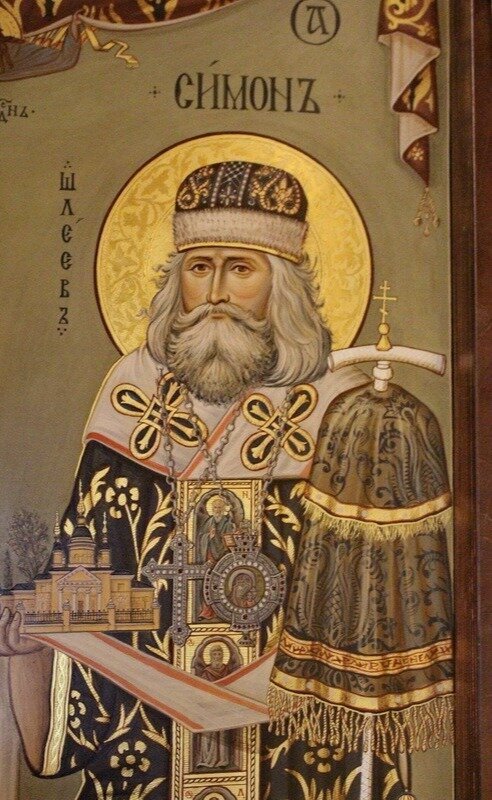On April 15 the members of the department heard and approved the statement of priest M. Cheltsov about the necessity of composing, on behalf of the Presidium, an epistle to the Old Believers who are not in communion with the Church. A draft of a special message, but in the name of the Most Holy Governing All-Russian Synod itself, was drawn up and read in the VIIIth Department by Fr. Shleev. This message is an invitation to the coming local council with words of love in Christ and fraternal exhortation to the Old Believers of various denominations, the supporters of the Belokrinitsky hierarchy, who are called upon, as the senior in number, to draw others into the bosom of the Church and to make them, while their archpastors retain their inherent dignities, children of the one holy Church, “confirmed by great councils and protected by patriarchal thrones,” as well as to those who accept the runaway priests and to those who are of priestless denominations. The last lines of the epistle call for reconciliation and hope for reunion:

...who are called upon, as the senior in number, to draw others into the bosom of the Church and to make them, while their archpastors retain their inherent dignities, children of the one holy Church
“Let us love peace, and let us love one another. For the sake of the dissimilarity of the folding of the fingers, for the sake of the dissimilarity of the number of prosphorae, let us not ruin the divine work.... And why should we not hope with you for the unity of spirit in the bond of peace? You have sense, you have the power of reasoning, and, moreover, as Christians, you are looking forward to the future judgment. And we, too, for our part, are aching for you, are concerned for you, and ask you, through this message, to come to us at the forthcoming All-Russian Council with a sincere desire to know the truth and to see how meekly, joyfully, and with all readiness we will accept you. If you have doubts and are tempted by some questions, propose them to the council, and your doubts will be resolved, your perplexities will be destroyed, and your aspirations will be fulfilled”.
It follows from the text of the epistle that the project of accepting the Belokrinitsky hierarchy in the full dignity was under consideration. It is probable that the provisions of this document were agreed upon, at the very least, with the members of the department and its chairman, Vladyka Anthony (Khrapovitsky), and expressed a joint point of view on overcoming the schism; in any case, from Father Simeon's speech at the local council it is known that both Vladyka Anthony and Professor N. I. Ivanovsky considered it possible to accept the Belokrinitsky hierarchy in the full dignity. However, we do not know whether this document was approved at the meeting of the department and with amendments. In any case, the epistle reflects the father's point of view on the cessation of the schism, which (taking into account all the materials of the VI-th department) consisted in the following practical steps -
- restoration of the Patriarchal administration by the forthcoming local council;
- abolition of anathemas on the old rites and their bearers, recognition of the equivalence and equal benediction of the old and reformed rites;
- appointment of an Orthodox Old Believer bishop;
- the return to the bosom of the Church, through this, of the Priestly and Priestless;
- the reunion of the remaining Priestly through the acceptance of the Belokrinitsky hierarchy in the full dignity.
The resolutions of the Fifth Division of the Presidium shook the Old Believers' world. The resolutions approved by the department meant a fundamental leap forward in relations with all the bearers of the old rite. Indeed, much was for the first time: for the first time in the history of the Russian Church, its official body recognized the equality of the old and reformed rites, petitioned for the abolition of the anathemas of the councils, for the abolition of Metropolitan Platon's discriminatory amendments to the rules of Edinoverie, for the introduction of Edinoverie bishops, for the development of Edinoverie and its institutions (brotherhoods, schools, congresses, etc.).
Indeed, much was for the first time: for the first time in the history of the Russian Church, its official body recognized the equality of the old and reformed rites, petitioned for the abolition of the anathemas of the councils, for the abolition of Metropolitan Platon's discriminatory amendments to the rules of Edinoverie, for the introduction of Edinoverie bishops, for the development of Edinoverie and its institutions (brotherhoods, schools, congresses, etc.).
Source: The Road to Golgotha, pp. 103-104


